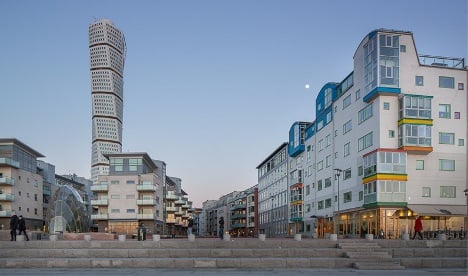Flexible interest rate mortgages still dominated the Swedish market in March, as new figures from state-owned mortgage providers SBAB showed that 71 percent of home buyers go for that option. It reflected a wider trend.
"For several years the debt has increased in proportion to income at the same time as the time span for locking down your interest rate has decreased," SBAB in a statement.
On Wednesday, however, SBAB revealed that 28 percent of home buyers opted for fixed-rate mortgages, spanning from one to four years. It was the highest percentage since 2012, the lenders noted.
"I think people are becoming a bit more cautious," chief analyst Tor Borg told The Local. "The Riksbank lowered the repo rate in December, and we're down at very low interest rate levels, so people think this is the last decrease the Riksbank will do."
"So people look to the future and wonder if it's time to lock down the interest rate (on their loans)," he said.
Across Europe, mortgage borrowers behaved very differently, he noted. The high proportion of Swedes that has flexible interest rates is unusually high. But on many mortgage markets, customers are not penalized as heavily as they are in Sweden when homeowners need to renegotiate a fixed-rate mortgage.
Borg said such penalties could in part explain Swedes' reticence to enter into fixed-rate contracts.
"I absolutely think so, it's one of the reasons you avoid it," said Borg, explaining that in June Swedish mortgage holders won't have to repay as much of the outstanding interest rates if they scrap a loan ahead of schedule.
He said that reform may have an effect on Swedes' propensity to opt for fixed-term mortgages, but it would take a year or so to show up in the statistics.
Among homeowners who opted for fixed-term mortgages in March, the three-year contract was the most common.
"The increase in these fixed-rate loans is primarily concentrated around the three-year mortgage. In proportion to all lending, (it) has doubled since November 2013 and amounted to 9 percent in March – compared to only four percent five months ago," SBAB said.
Longer term contracts, more than five years, have become almost extinct.



 Please whitelist us to continue reading.
Please whitelist us to continue reading.
Member comments